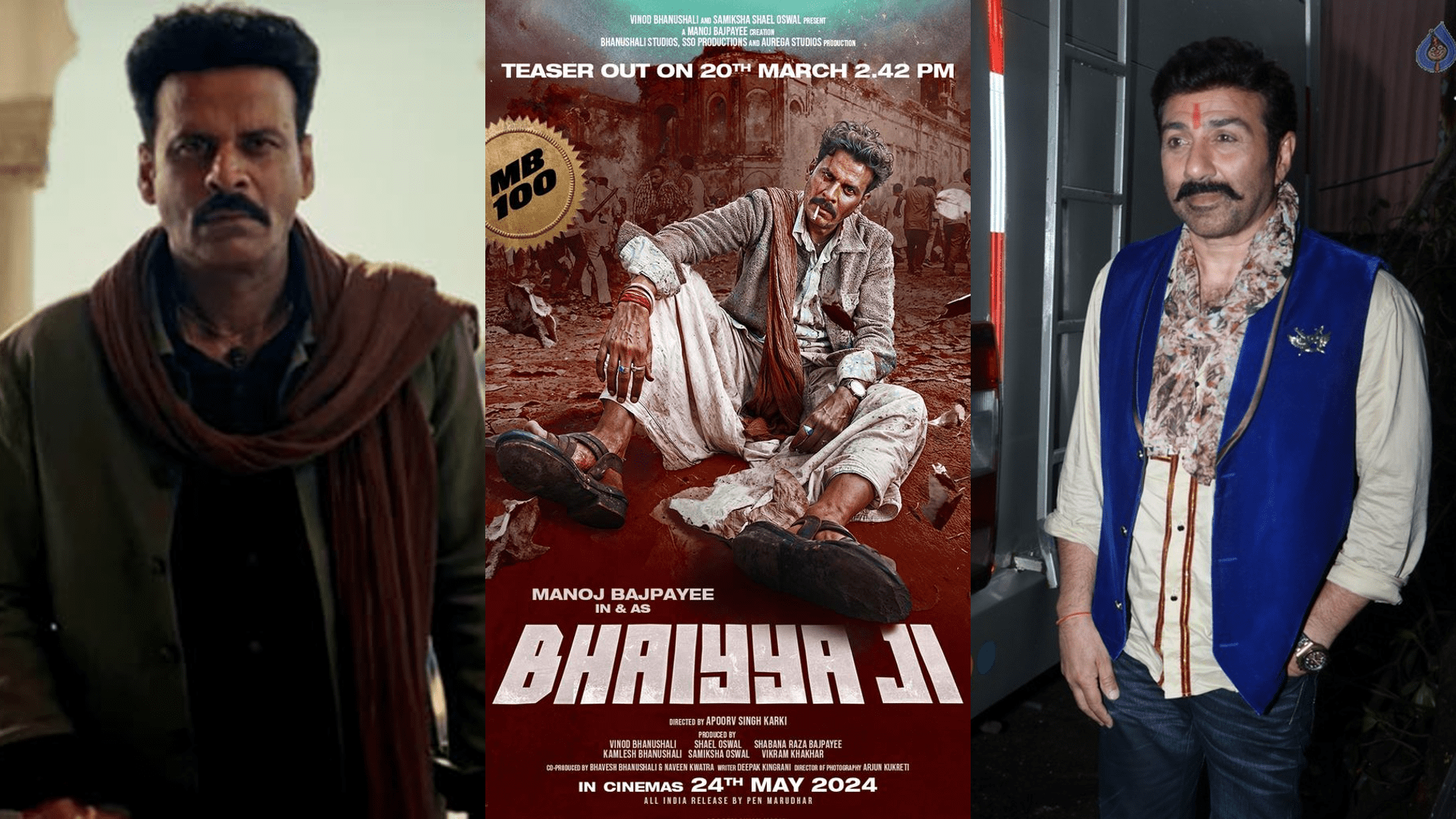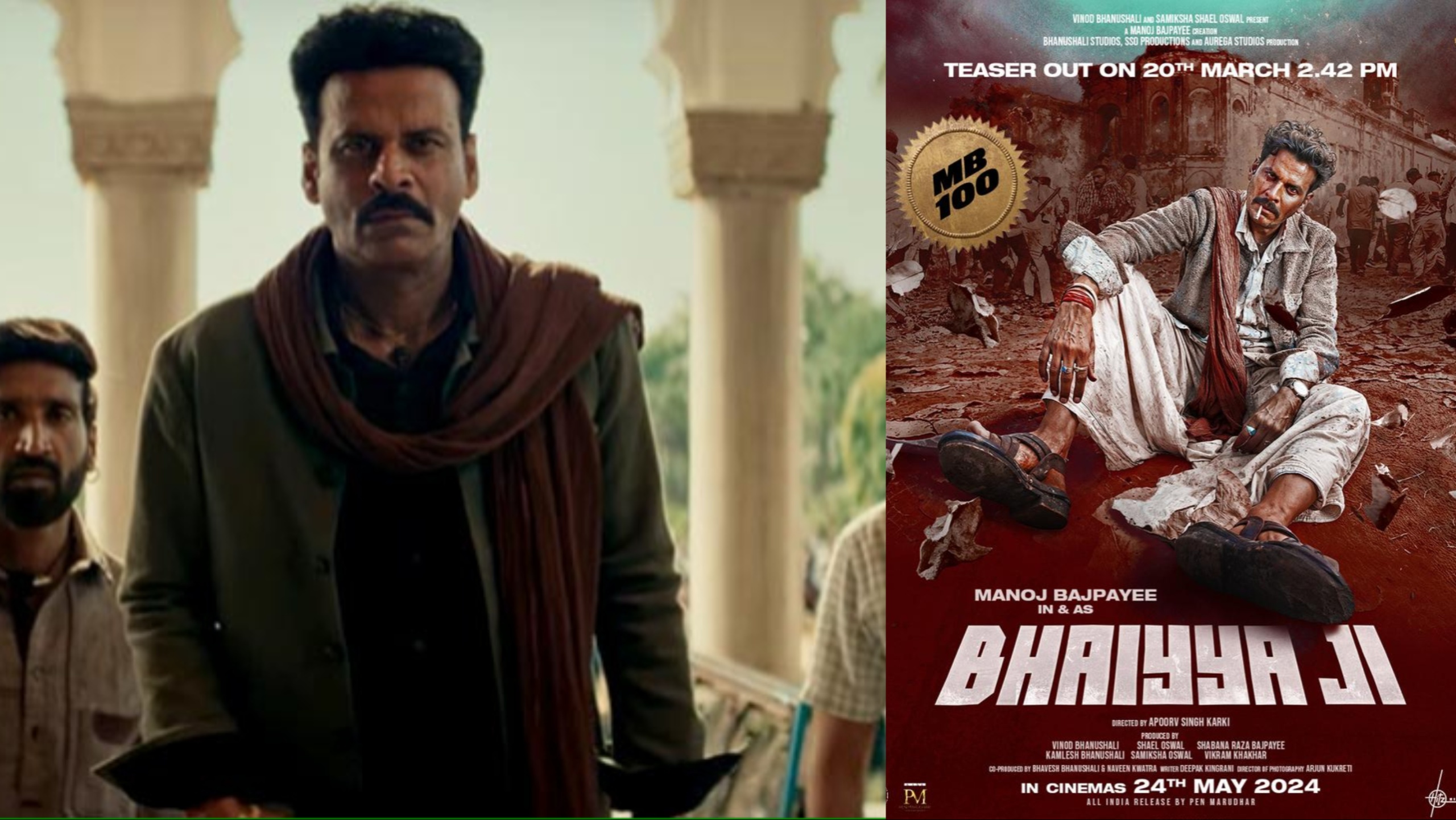“Sirf Ke Bandaa Kaafi Hai,” a gripping drama directed by Apurv Singh Karki and starring Manoj Bajpayee as a lawyer in a contentious case, was released last year. With “Bhaiyya Ji,” the pair tries to enhance a single hero story this year, but the outcome is uneven, veering between an exciting actioner and a realistic drama.
- Rating: 2.5/ 5
- Cast: Manoj Bajpayee, Zoya Hussain, Zoya Hussain, Akash Makhija, Suvinder Vicky, and Chhaya Kadam
- Director: Apurv Singh Karki
- Released date: 24/05/2023

Entering the theatre to attend “Bhaiyya Ji,” I was excited to see how Manoj Bajpayee would commemorate his historic 100th film. But the moment the movie finished, I started to doubt if the buzz was justified. “Bhaiyya Ji” is mostly about Manoj Bajpayee’s character, the title, whose wedding celebrations in Bihar are suddenly overshadowed by his younger brother Vedant’s disappearance while traveling from Delhi. The plot intensifies when Bhaiyya Ji learns of the evil Abhimanyu’s involvement—the son of Chandrabhan Singh, the strong and mindless ganglord. This lays the setting for a story of retaliation in which family ties are put to the test against the backdrop of a criminal underground.
Narrative and Direction: A Fresh Perspective with Conflicting Outcomes
In “Bhaiyya Ji,” Apurv Singh Karki takes an unusual directing tack; he builds the tale so that viewers can jump in at any time, from the start to the finish, without feeling lost. Although creative, this approach, regrettably, produces a storyline that is shallow and undeveloped since it seems to go on forever without much of a development or resolution.
An Analysis of Bajpayee’s Character and Performance
The central character in the movie is played by Manoj Bajpayee as Bhaiyya Ji. He gives Bhaiyya Ji a subtle fragility that makes him both formidable and sympathetic, but also a raw intensity evocative of movie giants like Rajinikanth. But the screenplay rushes through pivotal scenes that are essential to comprehending his reasons, not giving Bajpayee enough time to thoroughly explore the background and metamorphosis of his character.
Supporting actors Suvinder Vicky as Chandrabhan and Zoya Hussain as Mithali, the wife of Bhaiyya Ji, give strong performances. Particularly Vicky sticks out for his depiction of a gangster who is both ruthless and illogical. The antagonist aspect of the movie gains a terrifying dimension with his presence. But the structural problems with the movie frequently eclipse excellent performances and keep the characters from realising their greatest potential in the plot.
Dramatic Yet Powerful Images and Symbolism
A notable visual component of the movie is the medallion, which evokes terror and loyalty and is a symbol of authority and legacy that travels throughout Bihar. Together with sequences of dust-filled battles and the contrast between Bhaiyya Ji’s rough look and Chandrabhan’s opulent velvet waistcoats, this medallion tries to ground the movie in a culturally relevant context. A visual contrast reflected in the main conflict of the movie is created by the cinematography, which equally portrays the rural beauty of Bihar and the stark grandeur of Delhi.
The Story of Two Indias: Themes and Messages at the Heart of It
With “Bhaiyya Ji,” the socioeconomic inequalities and widespread corruption in Indian society are attempted to be commented upon. A sometimes disregarded facet of urban India, Karki appears to allude to a sub-network of Biharis navigating metropolises like Delhi. Though it is not fully explored, this subplot—which implies Bhaiyya Ji’s strategic advantage because of his heritage and community ties—becomes just another underdeveloped piece in a string of lost chances.

A Defining Film Nearly Missed Its Mark
All things considered, by fusing the profundity of indie films with the spectacle of mainstream cinema, “Bhaiyya Ji” can completely reshape genre boundaries. The picture lacks a steady narrative thrust even with Manoj Bajpayee’s strong performance and several interesting directing decisions. Though original, the creative narrative method eventually compromises the emotional power and coherence of the story, making for an occasionally interesting but ultimately unsatisfactory viewing experience.
With their ongoing investigation of intricate stories and personalities, director Apurv Singh Karki and actor Manoj Bajpayee should take a more balanced tack in their next endeavors. With all of its ambition and flare, “Bhaiyya Ji,” regrettably, is a monument to the difficulties in fusing style with substance in film. We are left wondering what might have been if the movie had been able to incorporate its thematic goals with a more tightly wound story.